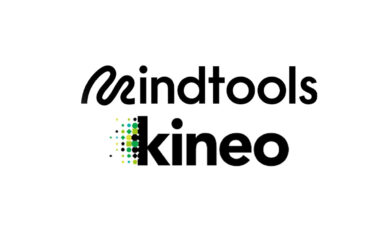Discrimination on the basis of age is as unacceptable as discrimination on the basis of any other aspect of ourselves that we cannot change. ∼ Ashton Applewhite, American writer and activist.
How Ageism Happens
On a recent flight, the passenger next to me started talking to me. I’m not the best at small talk, but I usually humor the first two or three questions before plugging in my earphones and “tuning out.”
Even before he started talking, I had summed him up, based on his appearance. He looked quite a few years older than me, he was well mannered, well dressed, and he had gray hair.
He asked some interesting questions, and the conversation continued for longer than I normally enjoy on a plane. Of course, I learned some things about him too, such as that he lives in a coastal town that’s very popular among rich retirees.
As the conversation progressed, and I asked him about his interests, I learned that he’s a geologist, he still works, he runs his own consultancy, and he travels for business frequently.
Here’s the thing: when we started talking, I thought he was a wealthy senior citizen on his way home from visiting his children. But, although my estimation of his age was more or less correct, I was dead wrong about him being retired.
It made me realize once again how easy it is to look at someone and, based on preconceived ideas, make up a story in your head about him or her. It’s not a deliberate action, but it happens before you know it. I’m sure that’s how it often happens in the workplace, too.
Ageism in the Workplace
During our Twitter chat last Friday, we discussed ageism in the workplace. It’s not a phenomenon that’s restricted to older people. Millennials also experience ageism, and it’s equally harmful to both age groups.
The message that came through, loud and clear, was that we have to be vigilant about how we think and talk about others, and how we treat people of all ages.
Here are the questions we asked, and some of the responses from participants.
Q1: What do you understand by the word ageism?
@MicheleDD_MT Stereotypes or generalizations about what a person can or cannot do based on their age, & not their capabilities.
@70mq My first thought is discrimination toward an older age group but, then again, it could also be toward a younger age group.
Q2: What ageist stereotypes have you come across at work?
@KasturiB25 Millennials are judged as being demanding.
@ishieta Not old enough, so not smart/wise enough to handle situations. Or, so old, therefore, not young enough! We run on appearances!
Q3: What are the causes of ageism?
@JKatzaman One source of ageism is from workers already in place, afraid of losing their jobs or “surrendering turf.”
@Midgie_MT Generalized beliefs of what a person is capable of or interested in. Lack of openness/curiosity to learn from another generation.
Q4: What effect can ageist discrimination have on people in the workplace?
@Yolande_MT Age discrimination can make people feel useless, “less than,” not good enough, incompetent.
@SistadaHealer Feeling unappreciated and not respected, forcing older workers to quit or take retirement earlier than they planned.
Q5: What are the effects of ageism on businesses?
@NootsCaboots This can cause a negative work environment which can lead to high turnover.
@BrainBlenderTec When you start to eliminate generations, you eliminate markets.
Q6: What can we do to leverage the strengths and contributions that older workers bring to the workplace?
@cherylayres Leverage key stakeholders as mentors who are committed to a no discrimination policy.
@mGeMi_i If older workers understand modern technology well, they will benefit the company very much as their experience is very important.
Q7: What are the benefits of having millennials in the workplace?
@aditi_sha26 They have vibrant minds and ideas, they can adapt any situation very easily; diversity-hiring helping the most.
@ZalkaB New generations like to question the status quo, the state of things, the meaning, so have good ideas to “hack” processes & ideas.
Q8: How can you protect yourself against ageist attitudes?
@harrisonia Defy ageist attitudes by getting to know the individual and treating people equally/fairly.
@Yolande_MT Don’t be condescending/patronising to younger people because they’re “young and inexperienced.” Teach them, learn from them.
Q9: What can you do if you see ageism (direct or indirect) happening in your workplace?
@MicheleDD_MT Review recruitment, promotion, performance, development & succession practices. Build in “checkpoints” to reduce bias.
Q10: How can we combat ageism in society at large?
@WonderPix Give more attention to someone’s ideas and abilities than the number of candles on their last birthday cake.
@GodaraAR Getting rid of stereotypes and keeping in mind that age is just a number. It’s rather experience that counts.
On a lighter note, the last word goes to Jim Katzaman @JKatzaman: “Sometimes old fuddy duddies are the worst offenders against other old fuddy duddies.”
Next time, on #MTtalk. . .
What are the most important reasons for asking questions? Please vote in our Twitter poll here to let us know.
In our next #MTtalk on Friday, May 26, our topic is “The Art of Asking Good Questions.” To share your thoughts and ideas, please join us at 1 p.m. EST, 5 p.m. GMT, 10:30 p.m. IST.
To participate in our chat about asking good questions, type #MTtalk in the Twitter search function. Then, click on “All Tweets” and you’ll be able to follow the live chat feed. To join the conversation, simply include #MTtalk in your tweet and it will show up in the chat feed.
Resources
In the meantime, here are some resources that will help you learn more about combating ageism in the workplace:
- Avoiding Unconscious Bias at Work
- Managing Mutual Acceptance in Your Team
- How to Retain Good Team Members
- How to Juggle Caregiving Responsibilities and Work
- Avoiding Discrimination
- How to Thrive in a Multi-Generational Workplace
- Reverse Mentoring



